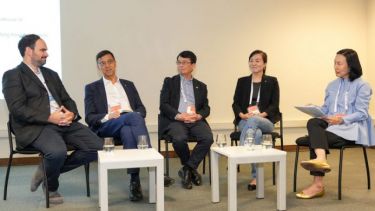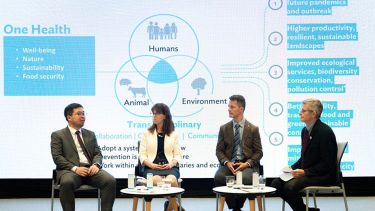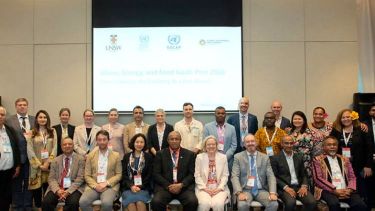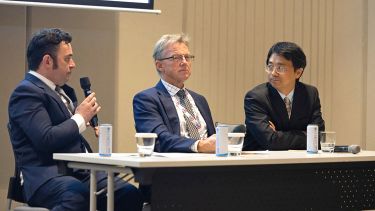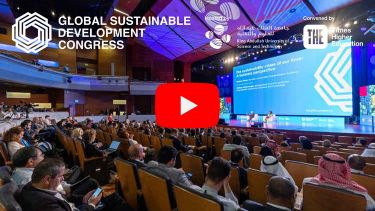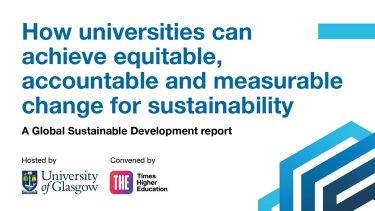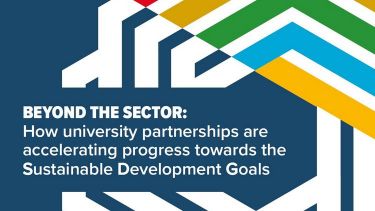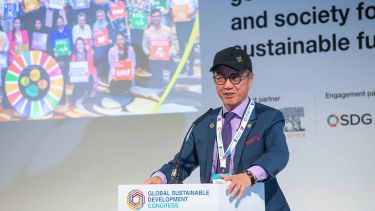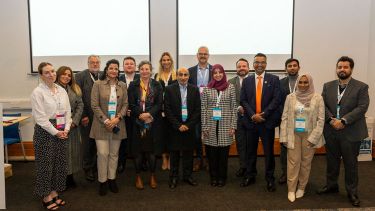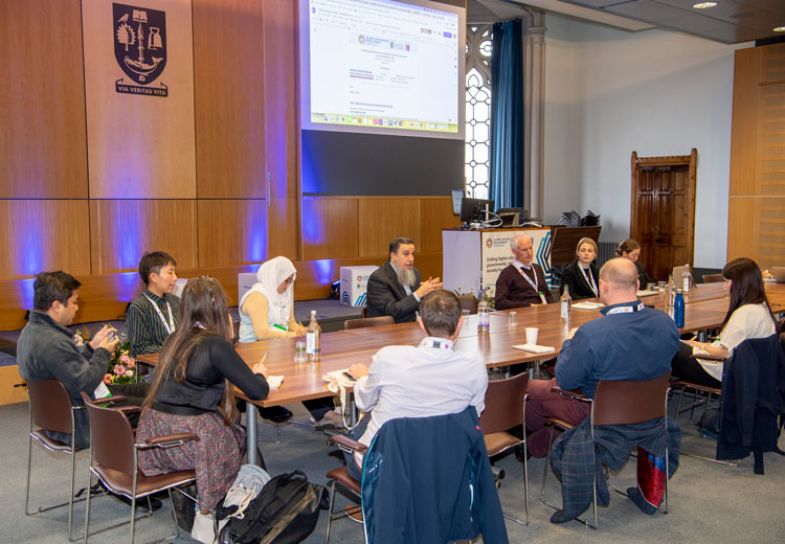
Researchers seeking real-world impact are urged to build trust in the communities they work with and find mechanisms to demonstrate positive change
Partnerships built with trust and a framework to measure actions and impact can help universities progress towards the UN Sustainable Development Goals (SDGs).
A session at the Global Sustainable Development Congress 2022, hosted by Times Higher Education in partnership with the University of Glasgow, examined how universities can contribute to the transformation of health, well-being and demography.
Chair Tim Sowula, World Summit Series editor at THE, asked the audience what qualifies a high-quality partnership.
Duncan Sharp, dean of the School of Health at Leeds Beckett University, said that when building partnerships, “there’s got to be something in it for everyone”. “For me, a really good partnership is where there’s synergy and additionality. It creates something that wouldn’t be possible if organisations weren’t coming together. And the sweet spot for me is when it’s a real organisational priority,” he said.
One attendee said it was important to have a common understanding of technology, knowledge and actions in collaborative projects linked to the SDGs. They argued for a conceptual model for this type of research. “If we are searching for an impact, we should know exactly what are the KPIs. Is it quantitative or qualitative? Should there be an action received?”
The importance of trust in partnerships was raised by several attendees, particularly in health services-related projects, where patient information might be used. “I think there’s a number of university partnerships that demonstrate an extraordinary level of trust in universities to be able to gather and curate data in a really sensitive way. With that trust, it means that people can believe in the outcomes of this research and the research can have a more effective impact on society,” said one attendee.
In the context of health promotion, another participant pointed out that there are valuable partnerships and approaches established, even if they have not previously been framed as work towards the SDGs. “There’s a lot of good practice already out there that we could probably draw in and then reconceptualise more broadly about SDGs and community work within the role of universities,” they said.
On measuring the success of research projects, one attendee said that illustrating impact was not only about big data. “We need to have a framework…that’s real-world research focused, not big data. If you want to demonstrate how sustainable development goals are actually linked to real-world research, there needs to be some kind of framework that demonstrates impact,” they said.
Jo Gill, vice-principal and head of the College of Arts at the University of Glasgow, said researchers in the arts and humanities could add value to collaborations focused on the SDGs. She said for projects to have an impact, it was important to lay the “groundwork with individuals with communities, the qualitative work”, and combine it with quantitative research to identify needs and accurately target efforts.
“We in the arts and humanities have a really good track record of working closely with communities on things that matter to communities. I think the work that we do helps enrich the present-day, more applied work that might be from a STEM or from social science background. I do think they’re complementary.”
In partnership with



